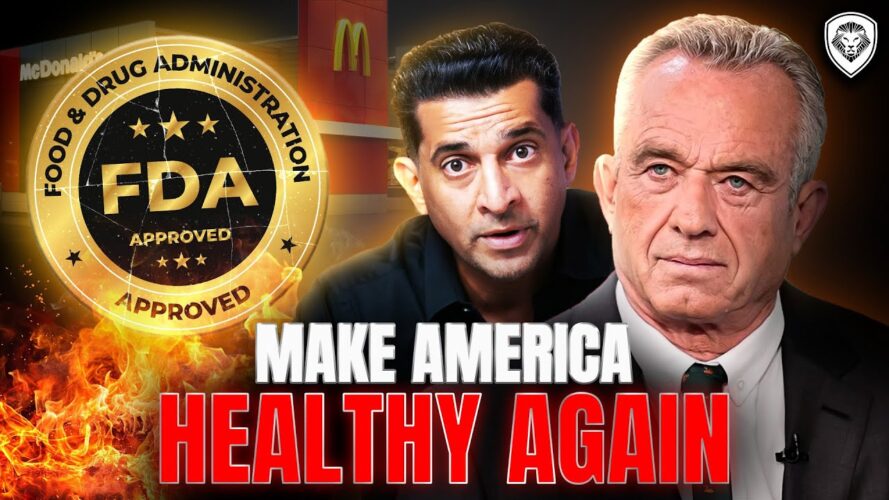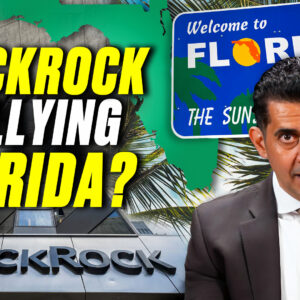The United States spends a staggering $1.5 trillion annually on healthcare, accounting for 18% of its GDP—the highest percentage in the world. Despite this, America has some of the lowest life expectancies among developed nations, with a gap that has widened over the years. This stark disparity raises pressing questions about the effectiveness of the US healthcare system, the role of harmful dietary practices, and the consequences of toxic foods…and Robert F. Kennedy Jr. now hopes to answer these questions. In this video, Patrick Bet-David explores the American toxic food crisis and unpacks what RFK plans to do as Secretary of Health and Human Services. Find out how we can make America healthy again in this eye-opening video.
Subscribe to Valuetainment for more deep dives, explainers, and motivational videos!
A Startling Paradox
In 1980, the US life expectancy was 73.7 years, only slightly behind other comparable nations. Today, Americans live five years less on average than their global peers. The data reveals an alarming decline despite unprecedented healthcare spending. For instance:
- Life expectancy: 77 years in the U.S., compared to 81–83 years in countries like Germany, France, and South Korea.
- Avoidable deaths: The U.S. leads with 336 per 100,000, far above the OECD average.
- Obesity rates: Nearly 43% of Americans are obese, compared to an OECD average of 25%.
A Toxic Food Landscape
The US food industry is saturated with preservatives, additives, and banned substances, contributing to these dire statistics. For example:
- McDonald’s fries in the U.S. contain over 10 additives, while their U.K. counterpart uses simpler ingredients.
- Mountain Dew is banned in Europe and Japan due to BVO, a substance linked to health risks.
- Cereals and coffee creamers in the U.S. include ingredients like BHT and trans fats, which are banned in many other countries for their carcinogenic properties.
The Role of RFK Jr.
Robert F. Kennedy Jr. (RFK Jr.) advocates for tackling this crisis by eliminating harmful chemicals in food and prioritizing health reforms. He has proposed significant dietary overhauls, including:
- Banning preservatives and additives like BHT, RBST, and artificial colors (e.g., Red 40, Yellow 5).
- Addressing systemic health inequalities and scrutinizing the influence of food industry lobbyists.
- Introducing policies to counter the obesity epidemic, improve maternal and infant mortality rates, and reduce chronic illnesses.
Related: RFK Jr. Critiques Trump’s Fast Food Diet as “Really Bad,” “Just Poison”
Health Industry Pushback
Kennedy’s stance challenges the deeply entrenched interests of food and pharmaceutical lobbyists, who profit from maintaining the status quo. His anti-establishment approach positions him as a controversial figure in the eyes of some, but a potential reformer for others. The video juxtaposes RFK Jr.’s health-conscious lifestyle with the unhealthy outcomes of America’s current food and healthcare systems.
The Bigger Picture
America’s poor health metrics extend beyond food. The US also has:
- The highest rates of obesity and chronic illnesses, with nearly 30% of adults suffering from multiple conditions like diabetes, cancer, or hypertension.
- Fewer doctor visits and practicing physicians per capita compared to OECD averages.
- A maternal mortality rate significantly higher than other developed countries.
A Call for Change
RFK Jr.’s advocacy highlights the need for a systemic overhaul, from dietary regulations to healthcare leadership. Patrick encourages viewers to reflect on the broader implications of these issues. With the right policies and leadership, America could reverse its declining health trends and improve life expectancy.
Ultimately, the most important question is whether America is ready to prioritize health over profits—and whether leaders like RFK Jr. can help usher in that change.


















Add comment